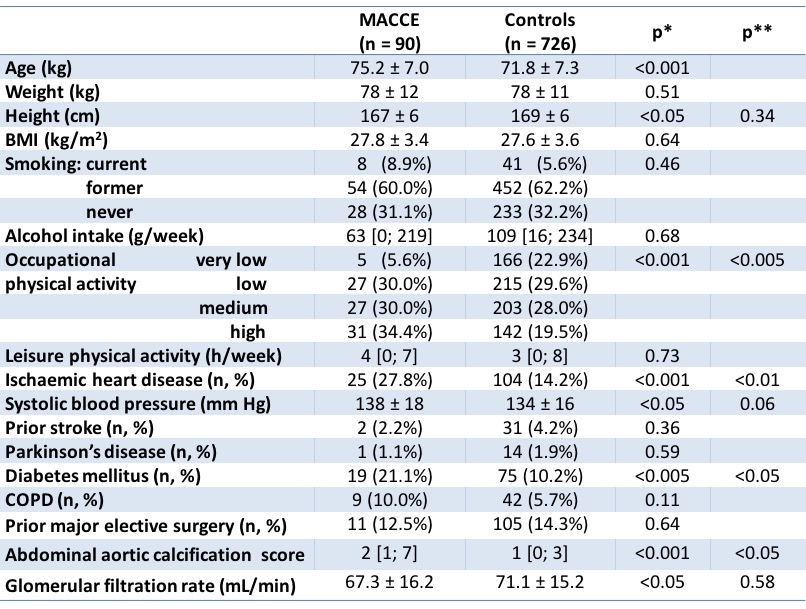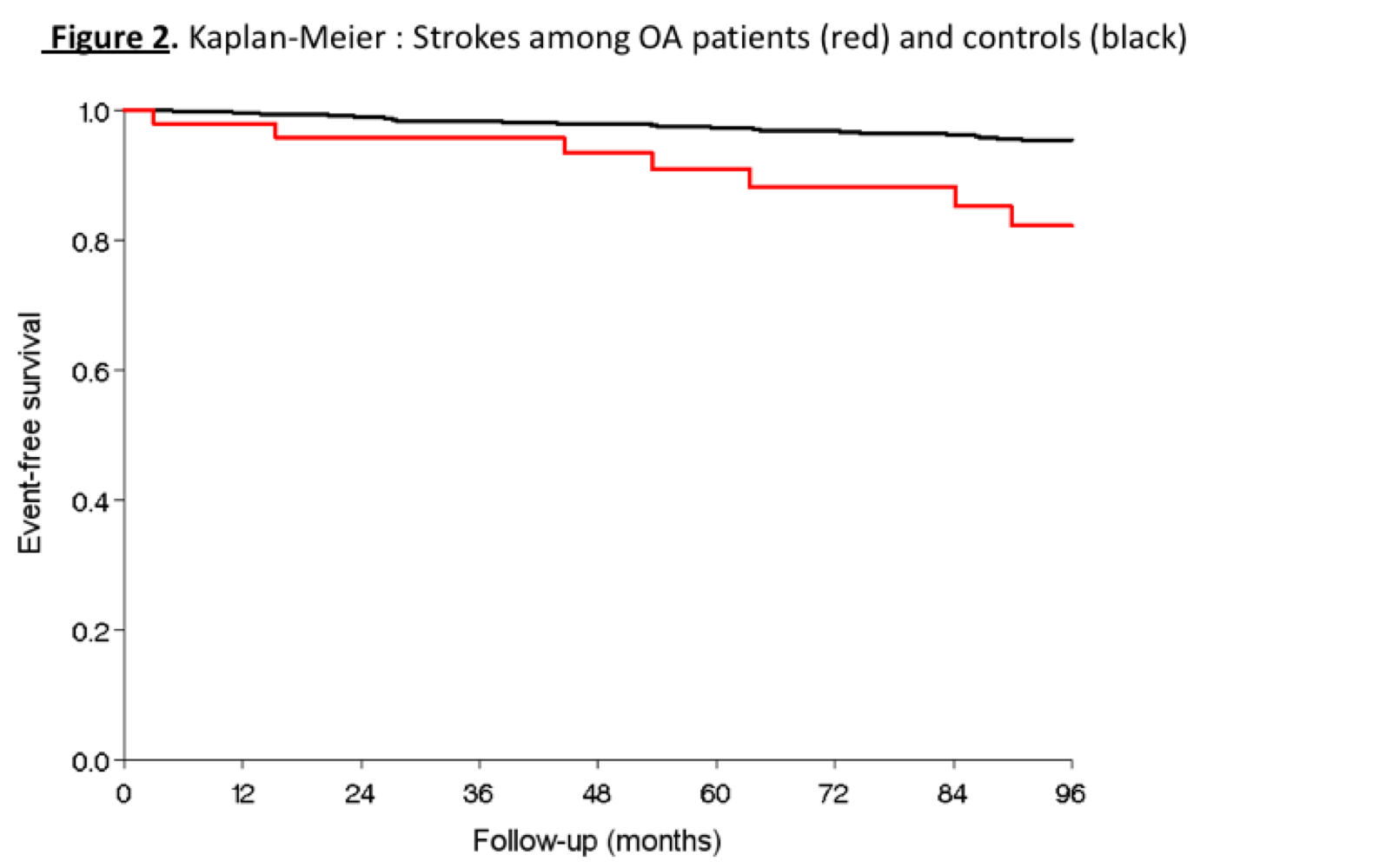Session Information
Session Type: Poster Session B
Session Time: 10:30AM-12:30PM
Background/Purpose: Osteoarthritis (OA) and cardiovascular disease share risk factors. The impact of OA on cardiovascular and especially cerebrovascular outcomes is still debated. Our aim was to assess the association between OA and the risk cardiovascular or cerebrovascular events in a cohort of older men followed prospectively for 8 years.
Methods: The STRAMBO study has involved men aged 60 to 87 years at baseline. We examined the relationship between joint replacement due to OA before baseline and incident cardiovascular events. Major adverse cardio- and cerebrovascular event (MACCE) – were defined as an acute coronary syndrome (ACS), stroke or sudden death probably of cardiovascular origin. ACS comprised myocardial infarction, cardiac arrest and unstable angina necessitating emergency intervention. The association between OA and the risk of outcomes was assessed using a Cox model adjusted for age, BMI, occupational physical activity, smoking, ischaemic heart disease, hypertension, abdominal aortic calcification, treatment with statins, treatment with vitamin K antagonists. Other potential relevant confounders such as diabetes mellitus or low leisure physical activity were not included in the model because they were not significant predictors.
Results: The mean age and BMI of 816 men were 72 years and 27.6 kg/m2. Among them, 49 men reported joint replacement due to OA at baseline (18 knees, 30 hips, 6 shoulders, 6 men had two joint replacements). Men who had joint replacement were older (76.6 vs 71.8 years, p< 0.001) and heavier (29.6 vs. 27.5 kg/m2, p< 0.001). They more often self-reported high occupational physical activity, ischaemic heart disease, diabetes mellitus, and the treatment with beta blockers (significant after adjustment for age).
During the follow-up, 90 men had incident MACCE, with a median [interquartile range] follow-up time to event of 51.6 months [27.5; 71.0]. Men who sustained incident MACCE were at baseline older (75.2 vs. 71.8 years, p< 0.01). They more often self-reported high occupational physical activity, ischaemic heart disease, diabetes mellitus (significant after adjustment for age). The risk of MACCE in men with joint replacement was higher compared with the controls (HR = 3.12, 95%CI 1.74 – 5.58, p< 0.001). Men with OA had increased HR for stroke (n = 38) of 4.94 (95%CI: 1.96; 12.42, p< 0.001) with a median follow-up time to event of 51.0 month [23.3; 72.9].
We did not observe such an association for ACS (n = 50, HR = 1.30, 95%CI: 0.49; 3.40, p=0.60) or for myocardial infarction (n = 29, HR = 1.35, 95%CI: 0.39; 4.68, p=0.64).
Finally, 116 men reported major elective surgery due to other reason than OA during the follow-up. Their risk of MACCE was not increased compared to patients who did not report major surgery (HR=1.03, 95%CI: 0.42-2.55, p=0.95), suggesting that the association we observe is not mediated by surgical risks.
Conclusion: Late-stage OA, defined by joint replacement, was associated with a higher risk of stroke in a prospectively followed cohort of men, after adjustment for relevant confounders. As our results suggest an association between severe OA and the risk of stroke, cerebrovascular risk assessment could be considered in the management of patients with severe OA.
To cite this abstract in AMA style:
AUROUX M, SZULC P, CHAPURLAT R. High Risk of Stroke in Men with Joint Prosthesis Due to Osteoarthritis: The Prospective STRAMBO Study [abstract]. Arthritis Rheumatol. 2024; 76 (suppl 9). https://acrabstracts.org/abstract/high-risk-of-stroke-in-men-with-joint-prosthesis-due-to-osteoarthritis-the-prospective-strambo-study/. Accessed .« Back to ACR Convergence 2024
ACR Meeting Abstracts - https://acrabstracts.org/abstract/high-risk-of-stroke-in-men-with-joint-prosthesis-due-to-osteoarthritis-the-prospective-strambo-study/


